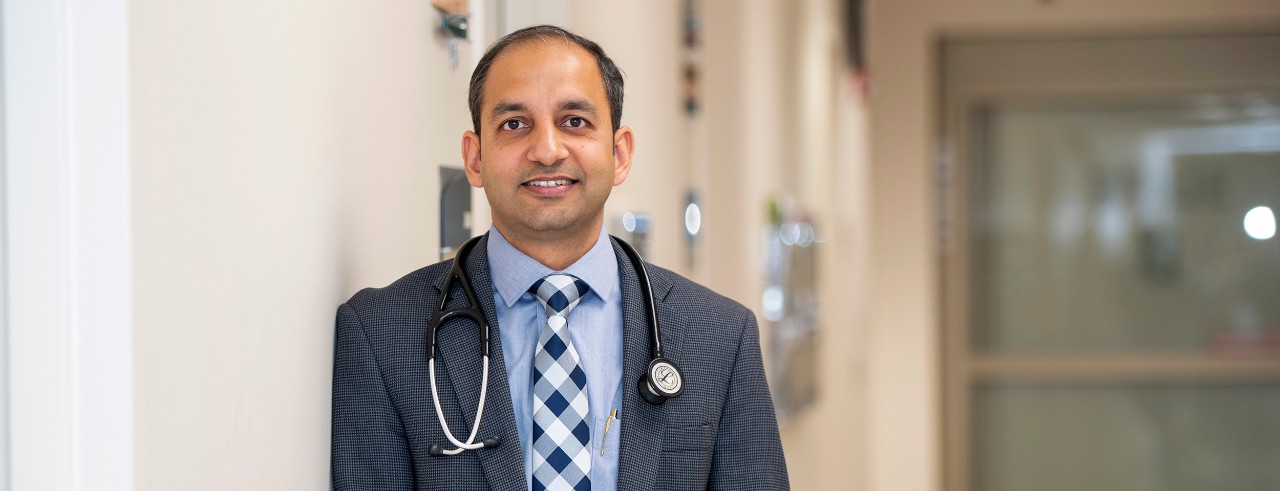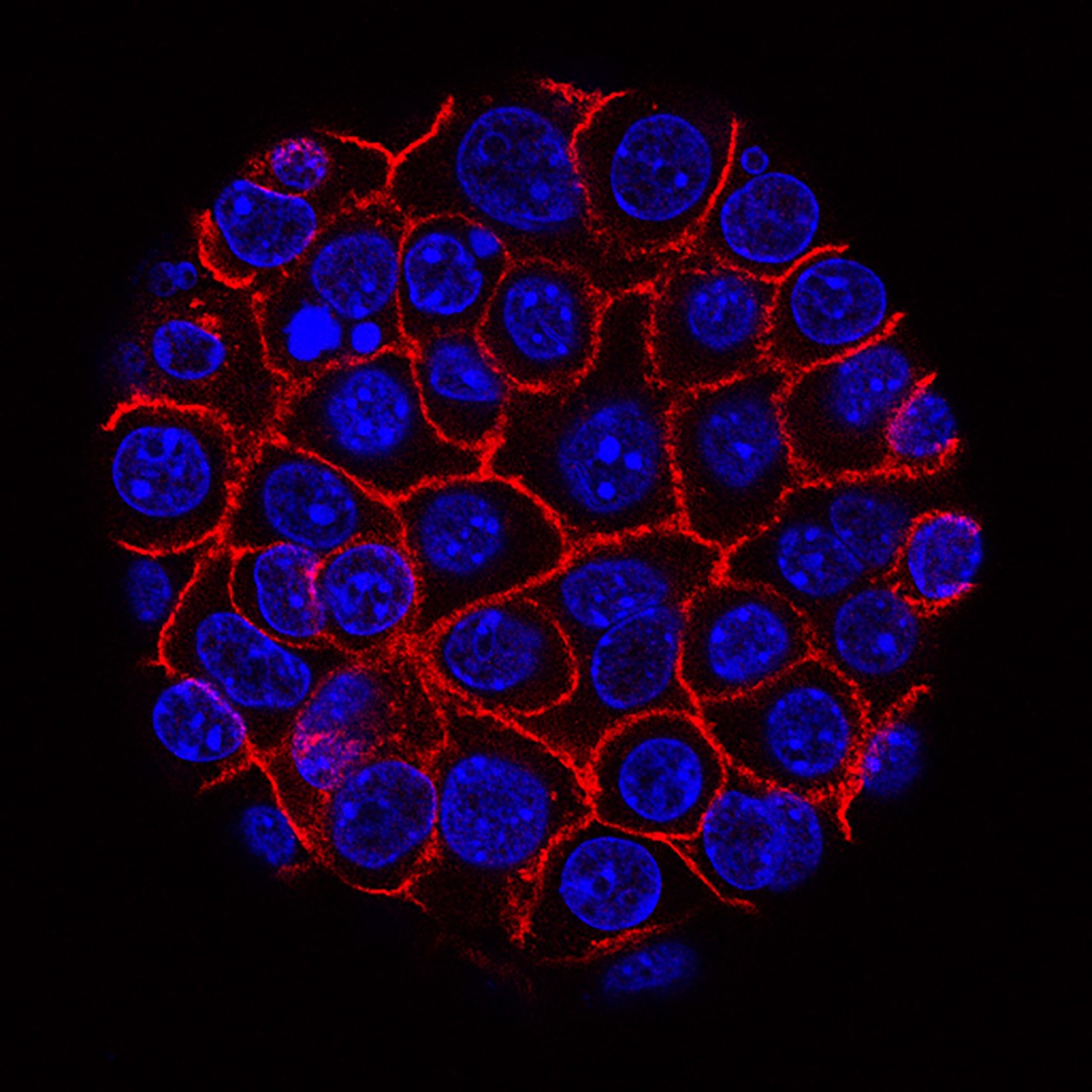
Solving the puzzle for a deadly problem
UC researcher leads national trial looking at a promising therapy for pancreatic cancer
There is only one solution to a picture puzzle, but that’s not true for other kinds of puzzles. And sometimes the solution to one problem might also be the solution for another.
Davendra Sohal spends his days putting pieces of the puzzle that is cancer treatment together to find new ways to help patients. Sohal, MD, a University of Cincinnati researcher and UC Health physician, is puzzling over whether treatments for one kind of cancer might work for others.
Sohal has focused on pancreatic cancer research and what is called precision medicine, or customized health care, with medical decisions, treatments, practices or products being tailored to patients, instead of a one‐drug‐fits‐all model. Now, he is opening a national clinical trial to see if a therapy that has shown promise in treating lung and uterine cancer could be applied to this particular type of cancer.
He says pancreatic cancer is one of the deadliest cancers and is often found in later stages, making it hard to treat. The American Cancer Society estimates that in the U.S. annually about 57,600 people (30,400 men and 27,200 women) will be diagnosed with pancreatic cancer. About 47,050 people (24,640 men and 22,410 women), or more than 80%, will die from it.

Pancreatic cancer cell. Courtesy of the National Cancer Institute/Unsplash
“It’s a really challenging cancer with very few treatment options available, which is why we’re always looking for new solutions,” he says.
Sohal, who has previously been supported by organizations such as BSI Engineering and GIVEHOPE, received a $1.9 million Food and Drug Administration grant in the fall of 2020 to study a therapy that targets a small molecule in cancer known as AKT. These molecules have been shown to play a role in helping cancer cells survive and form tumors.
He’s now opening a clinical trial that is available for patients.
The FDA allocation is called an orphan drug grant. The research will focus on drugs or medical products for an orphan disease, meaning a rare condition that affects fewer than 200,000 people in the United States. The FDA received 47 applications that were reviewed and evaluated for scientific and technical merit by more than 90 rare disease and clinical trial experts. Sohal’s project was one of six awarded.
In this study, patients who have metastatic pancreatic cancer, or cancer that has spread to other parts of the body, will all receive standard chemotherapy in addition to the study drug, but half will receive the drug and the other half will receive a placebo.
Pancreatic cancer is one of the deadliest cancers, and we have taken it on — we will keep going until we find cures.
Davendra Sohal, MD
“About 100 patients will be enrolled, with three other partner institutions across the country,” Sohal says, adding that UC is the lead institution on this study. “We want to see if adding this drug can control or even shrink pancreatic cancer that has spread, helping patients live longer. This drug has shown a lot of promise in lung and uterine cancer in patients, as well as pancreatic cancer in the lab, in animals and in tissues taken from humans. Based on these findings, it makes a lot of sense to test it in pancreatic cancer patients.”
Sohal says that while pancreatic cancer is one of the toughest diseases to take on, he is up for the challenge.
“My focus is on all gastrointestinal cancers — meaning, cancers of the digestive system organs,” he says. “I chose to focus on these cancers because there is a lot of variety, and honestly, these are very difficult cancers to treat, but I like that challenge.
“Pancreatic cancer is one of the deadliest cancers, and we have taken it on — we will keep going until we find cures.”
Featured image at top of Davendra Sohal in the clinic/Colleen Kelley/UC Creative + Brand
Participate in the trial
For more information on the study, contact Allison Loechtenfeldt at 513-584-1160 or Jasmine Parker at 513-584-8195.
The University of Cincinnati is leading public urban universities into a new era of innovation and impact. Our faculty, staff and students are saving lives, changing outcomes and bending the future in our city's direction. Next Lives Here.
Stay up to date on all UC's COVID-19 stories, or take a UC virtual visit and begin picturing yourself at an institution that inspires incredible stories.
Related Stories
Iron deficiency anemia significantly increases ischemic stroke...
May 16, 2025
HCP Live highlighted research conducted by the University of Cincinnati's Jahnavi Gollamudi while at University Hospital Cleveland Medical Center that suggests iron deficiency anemia independently and significantly increases the odds of ischemic stroke in young adults.
Shaping the future of digital transformation in higher education
May 15, 2025
To prepare for the future of Enterprise Resource Planning, Digital Technology Solutions hosted its first ERP Futures Summit on Wednesday, May 7th in partnership with Deloitte Higher Education Practice. Deloitte is the world’s largest provider of higher education professional services and offers unique skills for institutions to advance teaching, learning, and research.
Hoxworth Co-Director David Oh, MD, named to America's Blood...
May 14, 2025
Hoxworth Blood Center, University of Cincinnati, is proud to announce that David Oh, MD, interim co-director and chief medical officer, has been appointed to America’s Blood Centers (ABC) Board of Directors.
